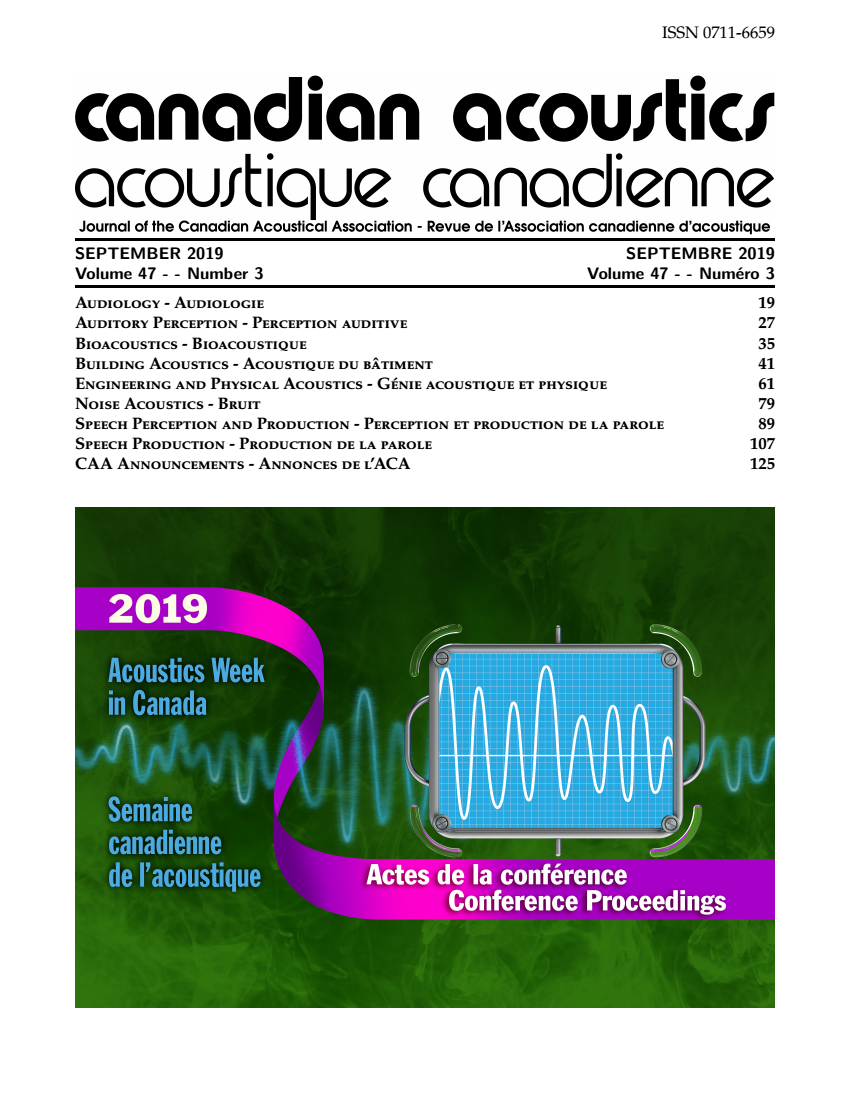Speech Perception and The Role of Semantic Richness in Processing
Résumé
The richness of meaning associated with specific words has been found to influence word recognition. Such findings, however, have come largely from studies based on visual word recognition, and related studies focusing on the acoustic signal and speech perception are less common. The present work recognizes that any effects observed may vary across modalities, and explores semantic richness effects as they may pertain to the perception and processing of spoken language. Goh et al. (2016) describe an auditory lexical decision experiment where concreteness, valence, arousal, semantic neighborhood density, and semantic diversity are found to affect spoken word recognition. The stimuli used in their study were limited to a set of fewer than 500 words, most of which were concrete nouns. In our study, we expand the scope of the analysis to include 9,086 words taken from the Massive Auditory Lexical Decision database (MALD; Tucker et al., 2019), each with corresponding values for each of the semantic variables of interest. In complement to the results described by Goh and colleagues, generalized additive mixed modelling indicates significant effects of concreteness, valence, arousal, and semantic neighborhood density on response latency. No effect was observed for semantic diversity. These results suggest that the processing of acoustic signals is influenced by top down semantic effects, even in decontextualized environments. While the specifics of these effects differ by semantic variable, it appears that increased semantic richness facilitates spoken word recognition.
Fichiers supplémentaires
Publié-e
Comment citer
Numéro
Rubrique
Licence
Author Licensing Addendum
This Licensing Addendum ("Addendum") is entered into between the undersigned Author(s) and Canadian Acoustics journal published by the Canadian Acoustical Association (hereinafter referred to as the "Publisher"). The Author(s) and the Publisher agree as follows:
-
Retained Rights: The Author(s) retain(s) the following rights:
- The right to reproduce, distribute, and publicly display the Work on the Author's personal website or the website of the Author's institution.
- The right to use the Work in the Author's teaching activities and presentations.
- The right to include the Work in a compilation for the Author's personal use, not for sale.
-
Grant of License: The Author(s) grant(s) to the Publisher a worldwide exclusive license to publish, reproduce, distribute, and display the Work in Canadian Acoustics and any other formats and media deemed appropriate by the Publisher.
-
Attribution: The Publisher agrees to include proper attribution to the Author(s) in all publications and reproductions of the Work.
-
No Conflict: This Addendum is intended to be in harmony with, and not in conflict with, the terms and conditions of the original agreement entered into between the Author(s) and the Publisher.
-
Copyright Clause: Copyright on articles is held by the Author(s). The corresponding Author has the right to grant on behalf of all Authors and does grant on behalf of all Authors, a worldwide exclusive license to the Publisher and its licensees in perpetuity, in all forms, formats, and media (whether known now or created in the future), including but not limited to the rights to publish, reproduce, distribute, display, store, translate, create adaptations, reprints, include within collections, and create summaries, extracts, and/or abstracts of the Contribution.


